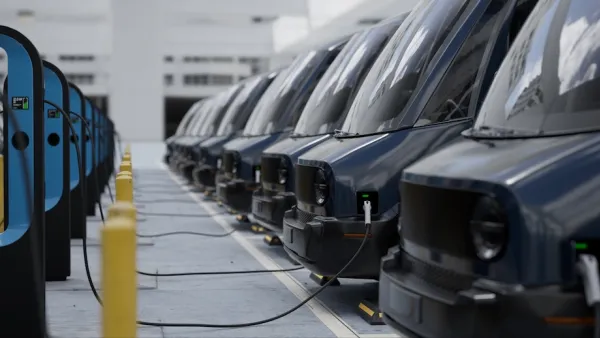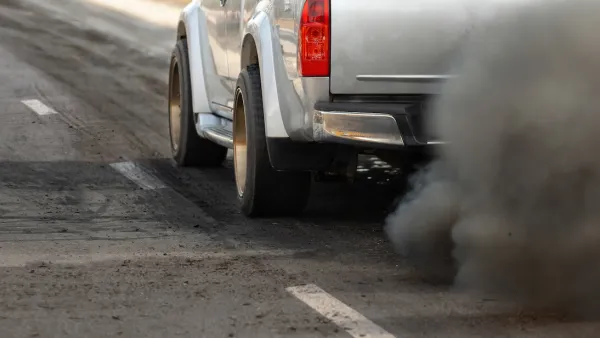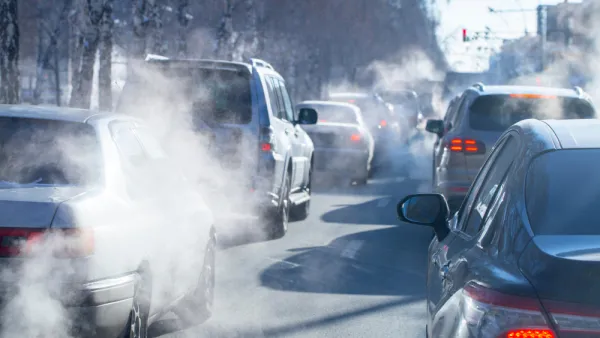A rule shelved during the Trump administration would require states and metropolitan areas to set targets for reducing tailpipe emissions, but advocates say it doesn’t go far enough to mandate results.

According to an article by Jared Brey in Governing, “A recently proposed federal rule would require states and metropolitan planning organizations to set targets for reducing tailpipe carbon emissions on portions of the national highway system that are within their boundaries, and to publicly monitor progress toward those goals.”
First proposed during the Obama administration and rescinded by President Trump’s administration, the rule is being revived to help bring states in line with national emission reduction goals. “Coupled with billions of dollars from the Infrastructure Investment and Jobs Act for carbon reduction and electric vehicle infrastructure — and more modest sums for multimodal transit planning — the administration hopes the rule will help states and metropolitan areas make fewer climate-damaging transportation decisions.”
While the FHWA says the rule, which offers flexibility to states and regions on setting targets and strategies for achieving them, should help “inform better decisions,” critics warn that it “won’t have a real impact on overall emissions without changes to the way mass transit and highway projects are funded.” Advocates say the federal government could do more to require climate considerations and emissions reduction strategies, calling this rule a welcome but inadequate step to address the urgency of the moment.
FULL STORY: States to Target Lower Transportation Emissions Under Proposed Rule

Analysis: Cybertruck Fatality Rate Far Exceeds That of Ford Pinto
The Tesla Cybertruck was recalled seven times last year.

National Parks Layoffs Will Cause Communities to Lose Billions
Thousands of essential park workers were laid off this week, just before the busy spring break season.

Retro-silient?: America’s First “Eco-burb,” The Woodlands Turns 50
A master-planned community north of Houston offers lessons on green infrastructure and resilient design, but falls short of its founder’s lofty affordability and walkability goals.

Test News Post 1
This is a summary

Analysis: Cybertruck Fatality Rate Far Exceeds That of Ford Pinto
The Tesla Cybertruck was recalled seven times last year.

Test News Headline 46
Test for the image on the front page.
Urban Design for Planners 1: Software Tools
This six-course series explores essential urban design concepts using open source software and equips planners with the tools they need to participate fully in the urban design process.
Planning for Universal Design
Learn the tools for implementing Universal Design in planning regulations.
EMC Planning Group, Inc.
Planetizen
Planetizen
Mpact (formerly Rail~Volution)
Great Falls Development Authority, Inc.
HUDs Office of Policy Development and Research
NYU Wagner Graduate School of Public Service




























